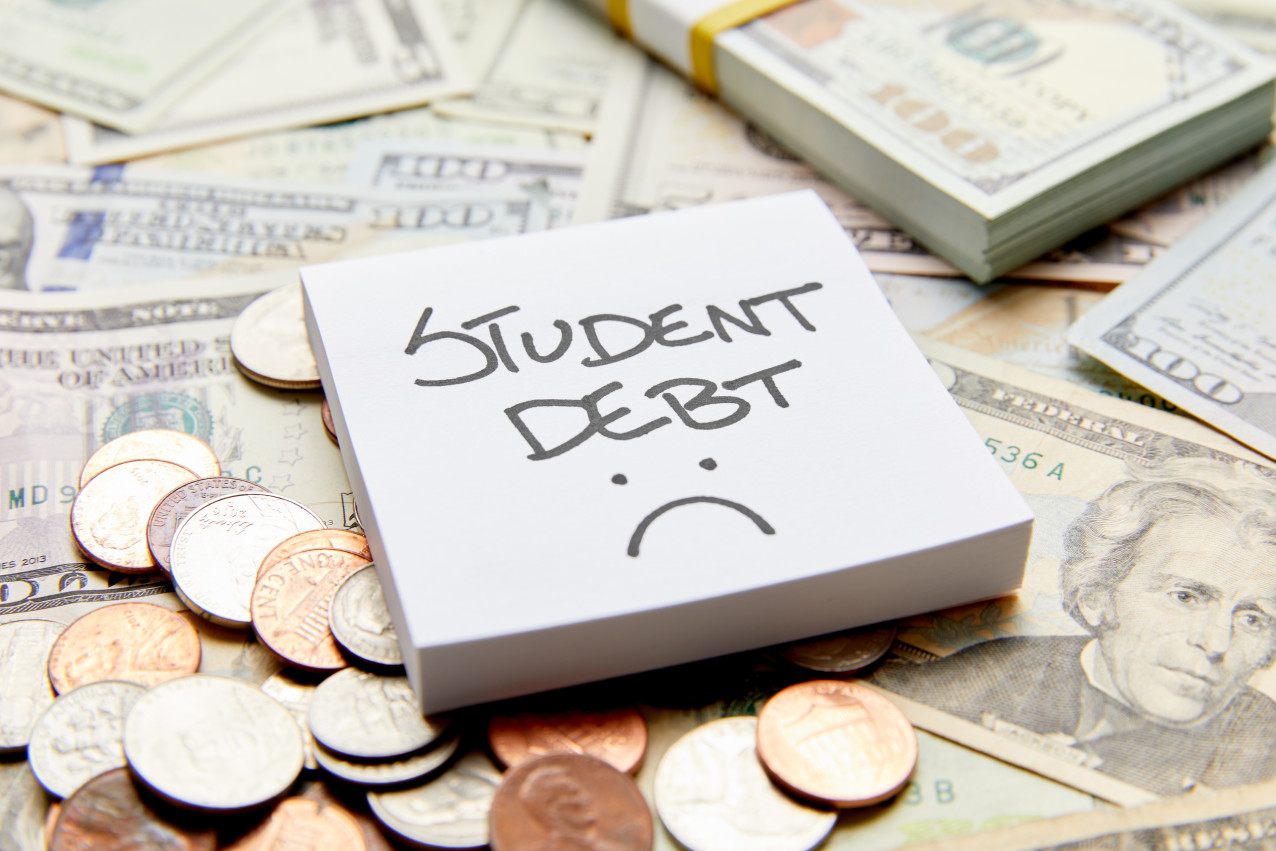
At $169,000 it is not an exaggeration to say that my student loan debt is almost as much as I paid for my house. A majority of my student debt was incurred in graduate school. After working three jobs to make ends meet for several years throughout my undergrad studies, substantial student loans were the only way for me to pay for my continued schooling.
President Joe Biden campaigned on the promise of forgiving $10,000 to all borrowers. Congress has also been in talks for months, at the prompting of senators such as Chuck Schumer, Bernie Sanders, and Elizabeth Warren, to possibly forgive $50,000 per borrower, though experts say this is unlikely.
To be clear, while I love this idea because it would change my life considerably, it is not something I expect, nor feel entitled to.
I took that money knowing exactly what it was, a loan: Something you are required to pay back. No one surprised me with these loans after I graduated and, as painful as it is for me to have to part with $2,000 (sometimes more!) each month, the fact that I have monthly payments on something that I signed my name to comes as no surprise to me. At times, I am a little resentful, but in the end, it’s what I signed up for.
Like many forms of debt, my student loans can often feel like a dark cloud hanging over me.
There have been times when I have wanted to be a stay-at-home parent and spend more time with my children, but this is not really an option if I would like to pay off my loans in a reasonable amount of time. So much of my monthly income goes toward paying my student loans that it can be discouraging to think that the primary reason I work and am unable to stay home with my children is to pay my debt. With my hefty monthly loan payments, it’s also really tough to save college money for my two daughters, and the thought of my own children being in this situation can be disheartening.
Although it can be hard sometimes, rather than focus on what problems student loan debt has presented for me, I try to focus on the positive things that acquiring that debt has brought me.
For example, as a school psychologist, I am in a profession that allows me some periodic time off that I am able to spend with my children. In California, where I live, this occupation requires at minimum, a Master’s degree as well as additional post-graduate training, and I wouldn’t have been able to obtain this type of position without acquiring student loan debt.
I am very fortunate to also have a spouse who covers a majority of our larger expenses, such as a house payment and groceries.
I know that many people who have student loan debt are single parents, or simply don’t have the luxury of a second income. If I didn’t have the benefits of an additional income, I would either be unable to pay my loans and still live comfortably, or I’d be on an income-driven repayment plan, which would take upwards of 25 to 35 years to pay off. I’d be almost in my 70s by the time I could expect to be fully debt-free. What is most discouraging about this reality is that for some borrowers, this is their only option.
The fact that I will be able to pay off my six-figure debt within 10 years, if all goes well, makes me one of the lucky ones.
The Department of Education has forms of relief, but many plans that permit lower overall monthly payments, require the borrower to accrue obscene amounts of interest, and often add several years to their repayment schedule. With the rising costs of higher education, many students are also finding themselves needing to borrow money for school through private lenders.
Private loans often have variable, high interest rates which can leave borrowers with large monthly payments that they have no way of budgeting for. With these almost predatory lending practices, and no anticipated option of a fixed rate, it’s no wonder so many borrowers feel they were forced into even more debt than they had originally expected.
Student debt relief would be great … but it doesn’t resolve the more insidious issue that the problem of student loan debt exposes: the exorbitant cost of higher education.
Forgiving student loans now would be fantastic, but it would do nothing to improve the cost of college for future generations, and the problem will only continue to be cyclical. If the rising costs of higher education aren’t addressed, our children and our children’s children will find themselves in these exact scenarios that so many see their parents in now … struggling to pay off almost insurmountable amounts of debt.
Our children deserve to be able to look forward positively to the prospect of higher education, rather than be fearful of a lifetime of debt.




